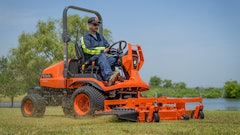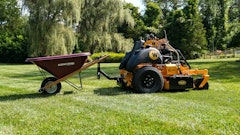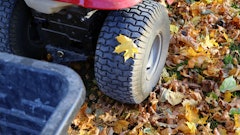If you’re a landscape equipment dealer looking for another product you can sell to contractors, trailers represent an often overlooked landscaper staple. A leading Connecticut dealer shares some valuable insight as to how you can cautiously, and effectively, break into the trailer market.
Trailers are a great example of another product category landscape equipment dealers can branch into. In an August 2008 survey of PRO Magazine subscribers (landscape contractors), 94% of landscapers said they own a trailer, and 36% said they will purchase at least one more within the next three years. The question is: Where will they buy them?
Crane’s Outdoor Power Equipment in Canaan, CT, began selling trailers in 2001. “We had a few inquiries from landscapers about where they could purchase trailers locally,” says Rich Crane Jr. “There weren’t any trailer dealers close to us, so I thought, ‘Why don’t we start selling them?’ Really, it makes perfect sense. With the size of today’s equipment, you don’t see the typical commercial user putting a mower in the back of his truck anymore.”
Crane’s tested the waters for the first couple of years, selling a limited quantity of trailers. Rich Jr. had contacted a large retailer that was far enough away so as not to be considered a competitor, and worked out an agreement to purchase the trailers through them at a discounted price. “I wasn’t getting as good of a price since I wasn’t buying direct from the manufacturer, but my overhead and risk were a lot lower,” Rich Jr. points out. Coincidentally, this is the same strategy Crane’s used when branching into Fisher snowplows.
Once his trailer business took off, Rich Jr. started doing more research on the different manufacturers that are out there. “The trailer market has a much wider variety of brands than the mower market, and the quality differences are significant,” he explains. Today Crane’s carries Bri-Mar and Haulmark trailers.
Freight is another important factor to consider. “When we place an order, we want it to be a full container,” Rich Jr. says. “That means we have to do our forecasting and ordering in the winter, as manufacturers usually get six or eight weeks behind in the spring.”
Perhaps the biggest challenge to trailer sales is simply becoming a dealer. Any trailer over 3,000 pounds GVW (gross vehicle weight) requires the retailer to have a dealer’s license because trailers have brakes on them. This means going through the process with local and state governments to gain zoning approval.
Rich Jr. says the most common trailers for landscapers are the 6x10 or 6x12 single-axle models (for crews running one rider and one walk-behind), or the 7x18 or 7x20 tandem-axle models for crews running two or three riders. “These bigger trailers also provide more room for crews engaging in spring and fall cleanup operations when baggers, push blowers, vacs and other tools are needed,” Rich Jr. says. Additionally, more landscape contractors are investing in enclosed trailers.”

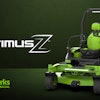

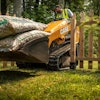
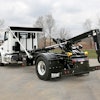
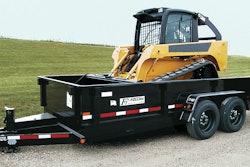
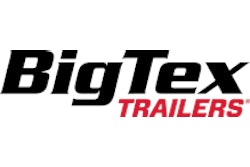
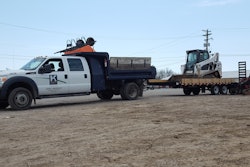





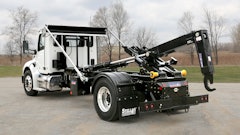
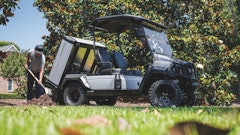

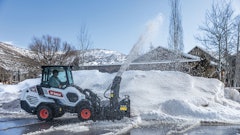
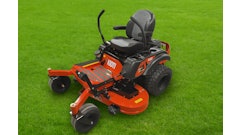
![U8kj71gt 720[1]](https://img.greenindustrypros.com/mindful/acbm/workspaces/default/uploads/2025/10/u8kj71gt-7201.8OyDyc124u.jpg?ar=16%3A9&auto=format%2Ccompress&fit=crop&h=135&q=70&w=240)
